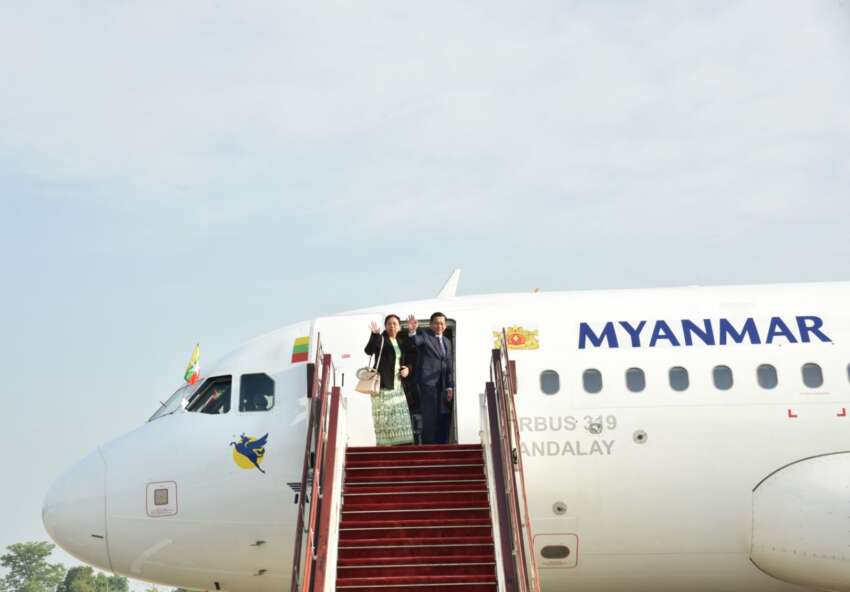
While terrorist military leader Min Aung Hlaing has permanently purchased an Airbus 319 aircraft for himself and his family, state-owned Myanmar National Airlines (MNA) is facing repossessions of its leased aircraft due to inability to pay rental fees, according to Myanmar aviation sources. On February 11 this year, Min Aung Hlaing permanently purchased the Airbus A319-115 (MSN 5193) aircraft XY-ALK that was previously leased from US-based Aviation Capital Group, rather than returning it.
Myanmar National Airlines had leased six Boeing 737-800 aircraft from US-based General Electric (GE) company through a state-level G to G agreement during the NLD government’s term in 2015. However, the military council has repeatedly delayed rental payments, and due to political changes and US economic sanctions, the aircraft are being repossessed one by one. Currently, only one Boeing 737-800NG remains in the fleet. The military council’s inability to make regular payments, combined with international sanctions and political instability, has led to a systematic repossession of these aircraft by leasing companies that had previously maintained trust-based relationships with the civilian government.
The Myanmar National Airlines Boeing 737 aircraft UB 812 that caught fire at Mandalay International Airport on May 6 was identified as an aged aircraft XY ALV previously operated by Indian airlines. Due to the military council’s increasing difficulty in securing aircraft leases from international sources, MNA has been forced to rely on operating aged aircraft beyond their optimal service life. Aviation sources explain that despite serious safety concerns about these aging aircraft, the airline has no choice but to continue using them due to the lack of alternatives under current circumstances.
Following the military coup, Myanmar National Airlines has been experiencing massive annual losses due to public boycotts, repossession of leased aircraft, poor management, and the military’s irregular operations. Furthermore, the military council has been misusing the civilian airline by violating international aviation standards and laws, using passenger aircraft for military operations including transporting weapons to conflict zones, ferrying military personnel, and retrieving military deserters who have fled to neighboring countries like Bangladesh and Thailand. This misuse of civilian aviation assets for military purposes represents a clear violation of international aviation regulations and has further contributed to the airline’s operational and financial difficulties.



